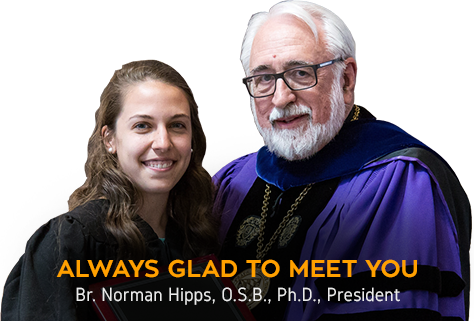We are now on our Lenten journey, and already I have encountered the claim that fasting is a thing of the past, that the point of Lent is to help the poor, serve our neighbor, etc. This comment came from an interesting source: John Harbaugh, the head coach of the Baltimore Ravens, came to a press conference on Ash Wednesday with ashes on his forehead.
While this wonderful public witness for his faith is not enough to make a Ravens fan out of even the most zealous St. Vincent monk (this is Steeler Country - we are home of the Steelers' training camp after all), Harbaugh is now on the list of public Catholics in the world of sports. Harbaugh's ashes brought immediate comments from Twitterdom. First, people showed their ignorance of Catholicism by asking if it was a bruise from a fight. Eventually, the conversation turned to what Coach Harbaugh is giving up for Lent. Once it was revealed that he is giving up chocolate and bread, one commenter gently chided Harbaugh, telling him that this is "not really what Lent is all about;" rather, Lent is about helping the poor or other such charitable works.
 I think this is a common view these days, not only among Catholics in the pews but among priests as well: "In olden days, it was all about fasting, and now we have more fully embraced the Gospel message of serving the poor." This is a false dichotomy. Leaving aside the question of whether or not Catholics today are more charitable during Lent than their ancestors who supposedly only fasted, the problem here is that Lent is about both of these. More precisely, Lent is a time for heightened prayer, fasting, and almsgiving. Since nobody is criticizing those who pray more or give more alms, I want to offer a defense of fasting:
I think this is a common view these days, not only among Catholics in the pews but among priests as well: "In olden days, it was all about fasting, and now we have more fully embraced the Gospel message of serving the poor." This is a false dichotomy. Leaving aside the question of whether or not Catholics today are more charitable during Lent than their ancestors who supposedly only fasted, the problem here is that Lent is about both of these. More precisely, Lent is a time for heightened prayer, fasting, and almsgiving. Since nobody is criticizing those who pray more or give more alms, I want to offer a defense of fasting:
Bodily fasts are an important way to refocus ourselves on Our Lord, to remove those bodily pleasures that impeded our spiritual growth. Controlling bodily desire in any form can be a challenge, and for many of us eating is experienced as a daily struggle between the tongue and the stomach: my stomach wants nourishment, my tongue wants pleasure. Our bodies are temples of the Holy Spirit, and yet we often treat the stomach as a second-citizen who must make due with the garbage left after a party in our mouths! In part, fasting is a way to seek a communal view of eating so that tongue and stomach can delight in the same thing. Hopefully after a fast we discover that, you know what, carrots, berries, ripe pineapples actually taste good! Okay, summer program participants know that I am not going to pretend that I have ever discovered them to be as good as chocolate, but they are better than I thought!
 Bodily fasting is also a way to help the poor and needy. Certainly a fast can help to open up the wallet given the savings on food, but more importantly a fast provides us with a brief glimpse into the lives of the destitute: the majority of our brothers and sisters throughout the world eat less every day than most American Catholics do on Ash Wednesday. If you go one day eating two less-than-half meals and one full meal, you are eating more luxuriously than most people can afford to do on a daily basis. Think of that this Good Friday, when you hit that 4 p.m. ravishing desire to eat - this is what most people face every day. Fasting provides a solidarity with the poor, then, and can open up our hearts to them.
Bodily fasting is also a way to help the poor and needy. Certainly a fast can help to open up the wallet given the savings on food, but more importantly a fast provides us with a brief glimpse into the lives of the destitute: the majority of our brothers and sisters throughout the world eat less every day than most American Catholics do on Ash Wednesday. If you go one day eating two less-than-half meals and one full meal, you are eating more luxuriously than most people can afford to do on a daily basis. Think of that this Good Friday, when you hit that 4 p.m. ravishing desire to eat - this is what most people face every day. Fasting provides a solidarity with the poor, then, and can open up our hearts to them.
Finally, and this is where we should broaden our understanding of fasting, St. John Chrysostom reminds us that "The value of fasting consists not only in avoiding certain foods, but in giving up of sinful practices." So, fasting is connected with prayer and almsgiving in that a true fast demands putting God first in our lives, looking upon the poor with love, and so forth. In the fullest sense of the term, then, fasting is both a bodily and spiritual turning away from sinful practices and toward the Lord Jesus, who prayed and fasted in the desert and thereby equipped himself to reject the devil's temptations.


 中国学生
中国学生 Estudiantes
Estudiantes



